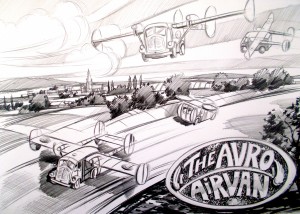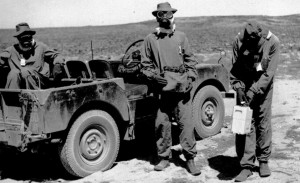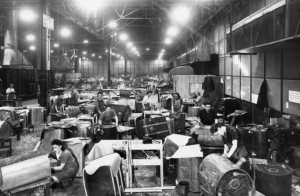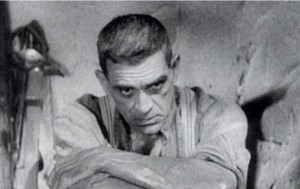One of my favourite TV shows has always been “Rumpole of the Bailey’. The Australian actor Leo McKern revelled in the leading role and made it as much his own as Ronnie Barker did with the character of ‘Fletcher’, the old lag prisoner in the half-hour show ‘Porridge’.
Rumpole was written by John Mortimer (1923-2009) the son of a QC father who advised young John to follow in his own footsteps and study law. Young John, who had had some success as a writer whilst still at Oxford, was tempted to follow the literary path. His father, aware that a writer would spend a great deal of his time working at home, offered the following sage advice;
‘My dear boy, think of your wife. At least the law gets you out of the house.’
Young Mortimer took to the law, adopted a ‘defend the underdog’ practice where he championed unpopular causes including the famous ‘OZ’ trial. Eventually, in 1984, he abandoned the law in favour of full-time writing.
I’m told that the character of Rumpole was based partly on Mortimer’s father who was a fan of poetry and of adventure novels. Certainly Rumpole could be heard intoning great swathes of Wordsworth on the show which darkly mentioned ‘…shades of the prison-house…’ as he marched about, ‘…trailing clouds of glory…’ his dark official garments generously dusted with the ash of his much prized cheroots.
The character of Rumpole was domiciled in a mansion flat at the back of the Albert Hall in London, where he lived with his wife, Hilda, who was always referred to, in hushed and reverential tones as ‘…She Who Must Be Obeyed…’ .
Bear with me. All of this disparate information will eventually make sense.
Henry Rider Haggard (1856-1925) eventually became a hugely popular adventure novelist, having failed spectacularly to be all the things his father wanted him to be. Despairing of the boy, Henry was dispatched from England to an unpaid South African position where he arrived just in time to meet some of the real life adventurers who abounded in Africa at the time. Africa was awash with gold, diamonds and endless opportunity and the place was alive with men eager to seek their fortunes.
Haggard first worked as an unpaid assistant to the Governor of Natal (1877) but was soon transferred to the Transvaal where the British annexation of the Boer Republic of Transvaal was taking place. Haggard, astonishingly, in the absence of the appropriate official, who was ill, was required to both raise the British flag at this hugely important ceremony and also to read the official annexation proclamation!
Now there was no stopping him!
In 1878 he became Registrar of the High Court of Transvaal, a real wage paying position! Within a few years he was back studying in England, married Marriana Margitson, and was called to the Bar in 1884. Haggard’s literary career took off with swashbuckling novels like King Solomon’s Mines, Allan Quartermain and She.
The character of Allan Quartermain, the hero of King Solomon’s Mines, was based on the Englishman Captain Frederick Selous, a ‘great white hunter’, and explorer who counted Teddy Roosevelt, Robert Baden Powell and Cecil Rhodes amongst his friends and who supplied literally hundreds of wildlife specimens to the Natural History Museum in London.
In Haggard’s hugely successful novels, Quartermain hears of the mysterious female leader Ayesha, who is held in awe by members of her African tribe and is known universally as ‘She Who Must Be Obeyed’. Mortimer has Rumpole use this phrase to describe his wife Hilda, but in the same reverential tones as used in the novels. It would not surprise me a bit if Mortimer’s father, like Rumpole, had the habit of referring to Mortimer’s mother in the same way.
And now to the poetry.
In Wordsworth’s ‘Intimations of Immortality’, a much longer poem, the following lines occur, and are quoted by Rumpole at regular intervals, usually in connection with some aspect of the plot. This short section is from ‘Recollections of early Childhood’ and is Wordsworth’s attempt to set out what he sees as our progress on earth from birth to maturity. Wordsworth believes that at birth we arrive on earth with an almost complete memory of our former heavenly existence with God, ‘…who is our home…’
To begin with, as a new born we are still very much part of this heavenly existence because ‘…Heaven lies about us in our infancy!…’
[Life on earth, he thinks, ‘… is but a sleep and a forgetting…’
Almost as if we had fallen asleep in Heaven and that our time on earth is simply a dream.]
Poem begins;
Our birth is but a sleep and a forgetting:
The Soul that rises with us, our life’s Star,
Hath had elsewhere it’s setting,
And cometh from afar:
[The Soul sets like the Sun in Heaven and immediately rises with us on earth as we are born.]
Not in entire forgetfulness,
And not in utter nakedness,
But trailing clouds of glory do we come
From God, who is our home:
[We come as innocent children from Heaven , ‘…trailing clouds of glory…’ and still very much aware of our celestial background.We have not as yet begun to forget the Heaven from whence we came.]
Heaven lies about us in our infancy!
[Then, as the child begins to grow…]
Shades of the prison house begin to close
Upon the growing Boy,
[ Wordsworth is comvinced that the longer we are separated from God and Heaven the more oppressive, the more like a ‘prison house’ our time on earth becomes. Note how the Infant has become the Boy, then the Boy becomes the Youth, and finally he becomes the Man]
But he beholds the light and whence it flows,
He sees it in his joy;
The Youth, who daily farther from the east
Must travel, still is Nature’s Priest,
And by the vision splendid
Is on his way attended;
[Now the Boy has become the Youth, has become older, but nevertheless retains something of the original ‘vision splendid’]
At length the Man perceives it die away,
And fades into the light of common day.
[In the end the Youth, in taking on the business of Manhood, finally loses touch with that eternal beauty and splendour and fades….
A friend, (JD) whose opinion I respect, suggests that this poem might also be about the exercise of the imagination. When we become first aware, our imagination allows us to believe that anything is possible. Children believe absolutely in wizards and fairies and see no reason why flying, or becoming invisible can’t be done. All things, anything you can imagine, are possible as a child.
As we grow older, away from childhood, we are subjected to propaganda by older, ‘sensible’ people which, though well meant, cruelly denies, indeed ridicules these early beliefs. To fit in, to become one with our ‘sensible society, we are then persuaded to like it or lump it, to renounce childish things and, as the precious, childlike way of looking at the world is rejected, so ‘…shades of the prison house begin to close…’
By the time we are adults, most people have absolutely thrown off these embarrassingly attractive notions of invisiblility and flying have faded into the safety and stodginess of everyday life where the exercise of untrammelled imagination has no place, and ‘…the light of common day…’ prevails.
But not all people. Writers, artists and musicians (and lots of others, quietly) refuse to be intimidated by the propaganda of mediocrity and disbelief and instead, cling shamelessly and steadfastly to their dreams.
And here, as a typical example of this, we have Mr William Wordsworth demonstrating absolutely how, by holding onto the creativity of childhood, the Heavenly triumph of the imagination can be splendidly achieved.
(My compliments, JD, and hour in your company was thoroughly inspiring and provided me with sack loads of ideas.)
Ira Maine, Poetry Editor




